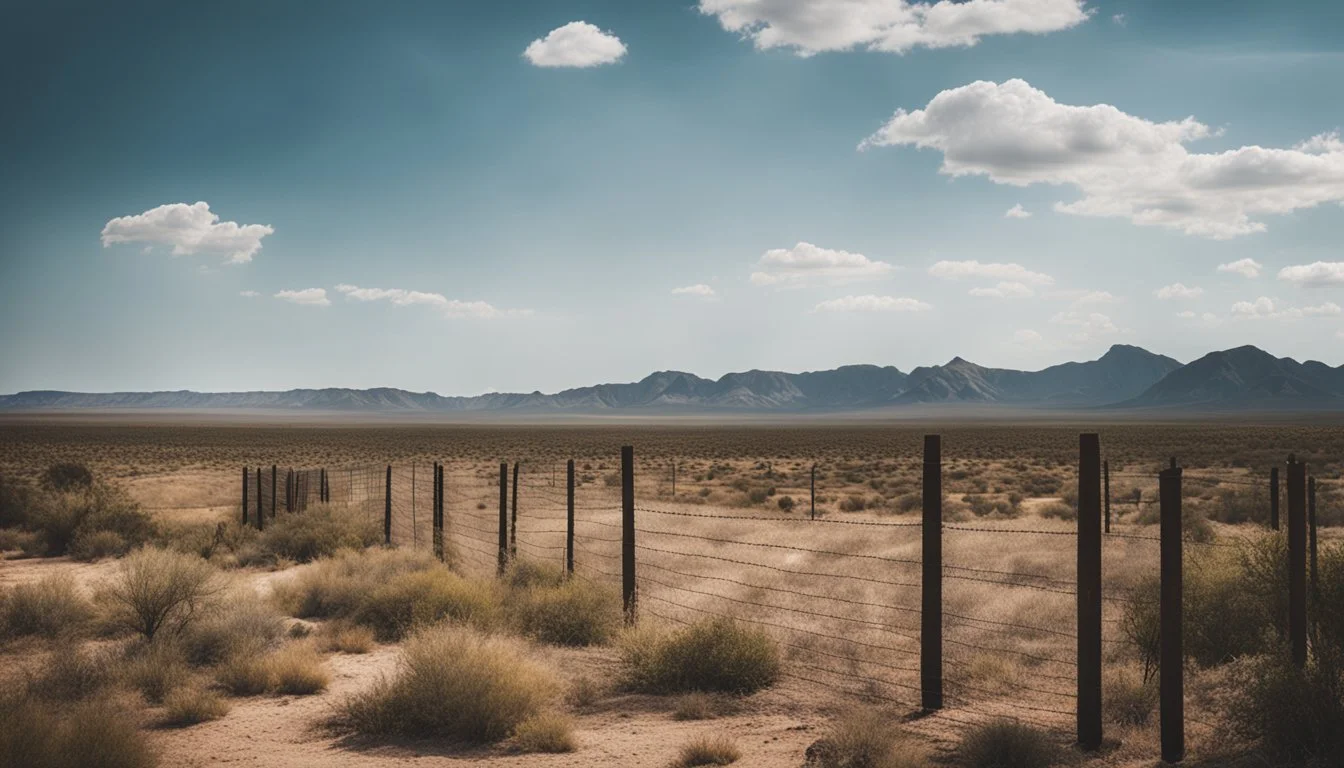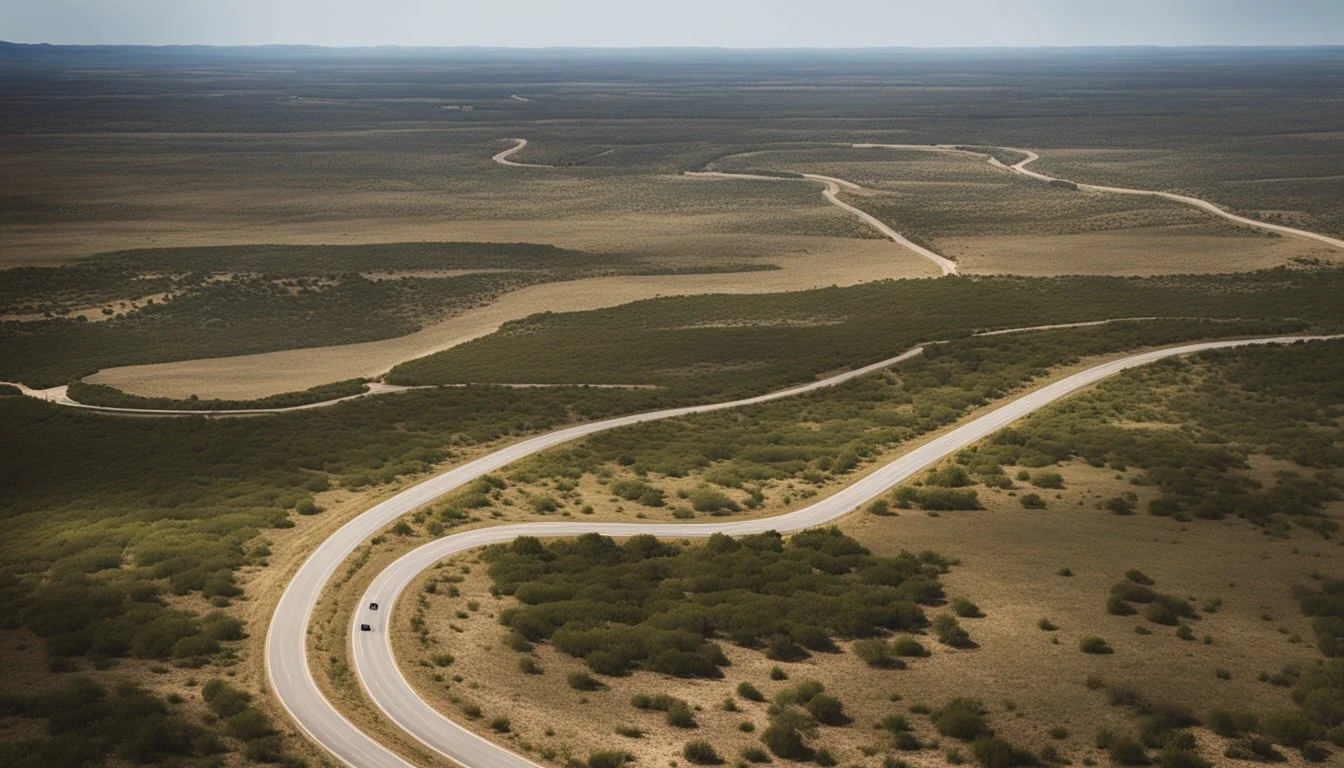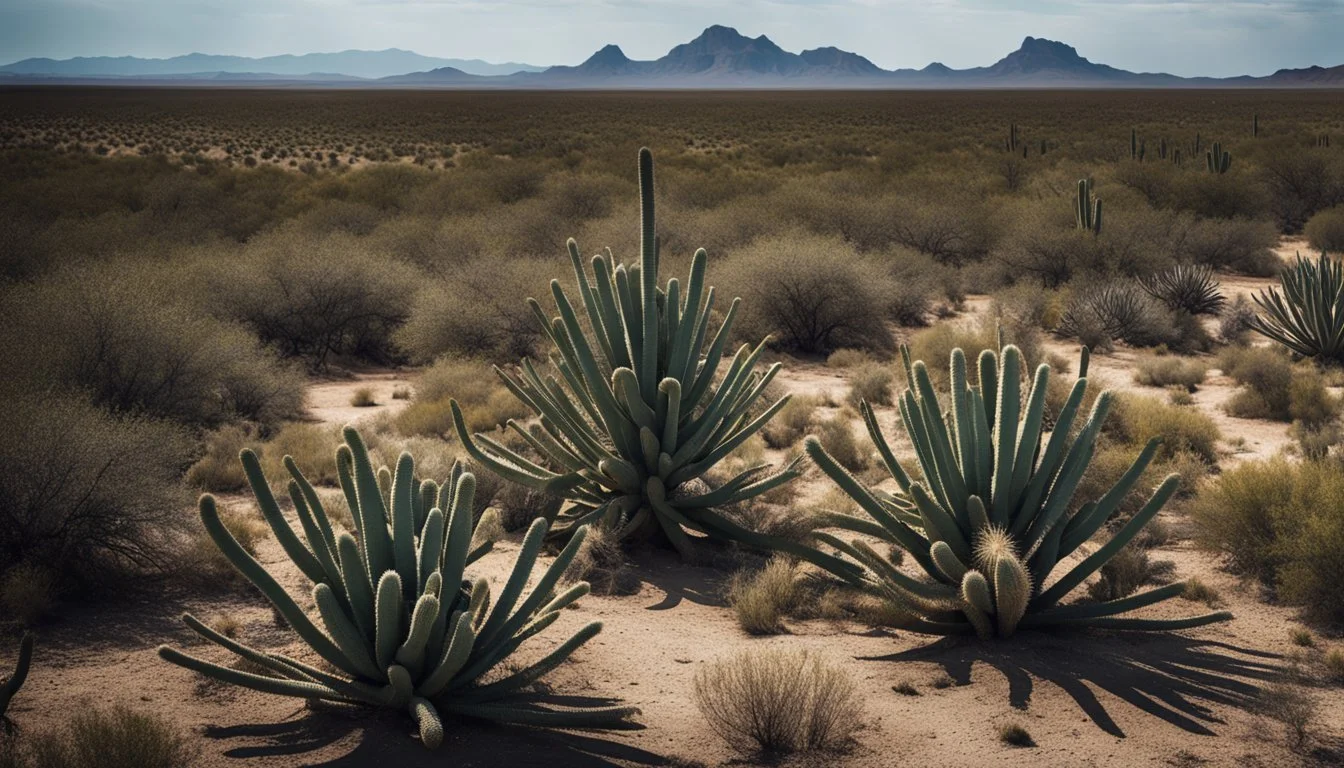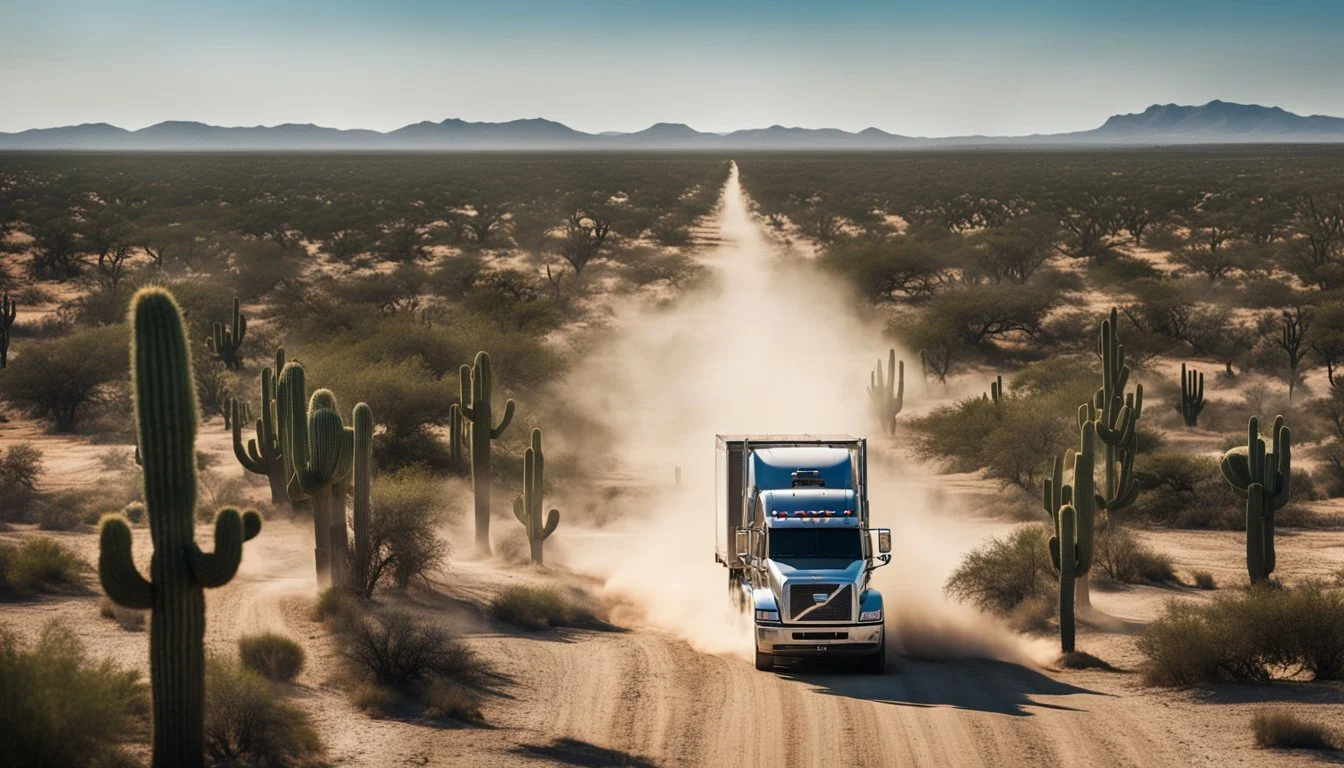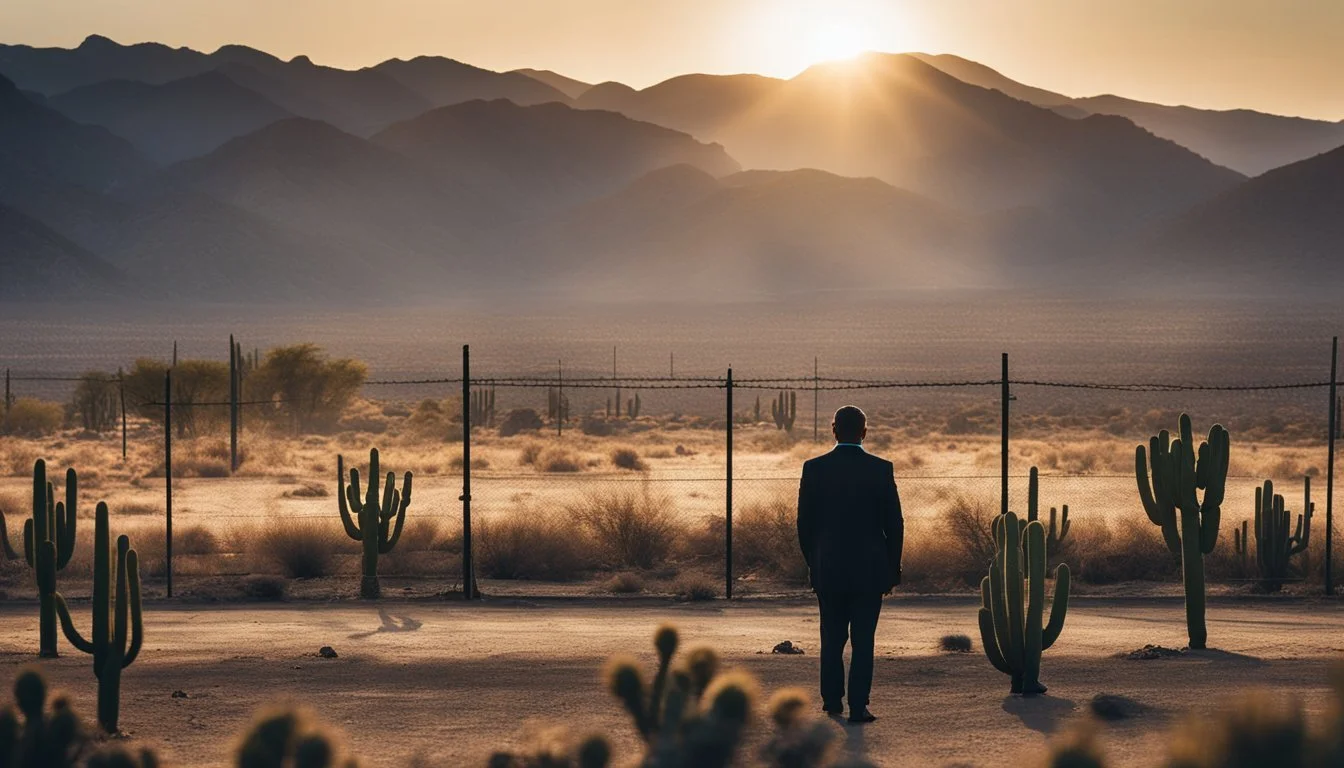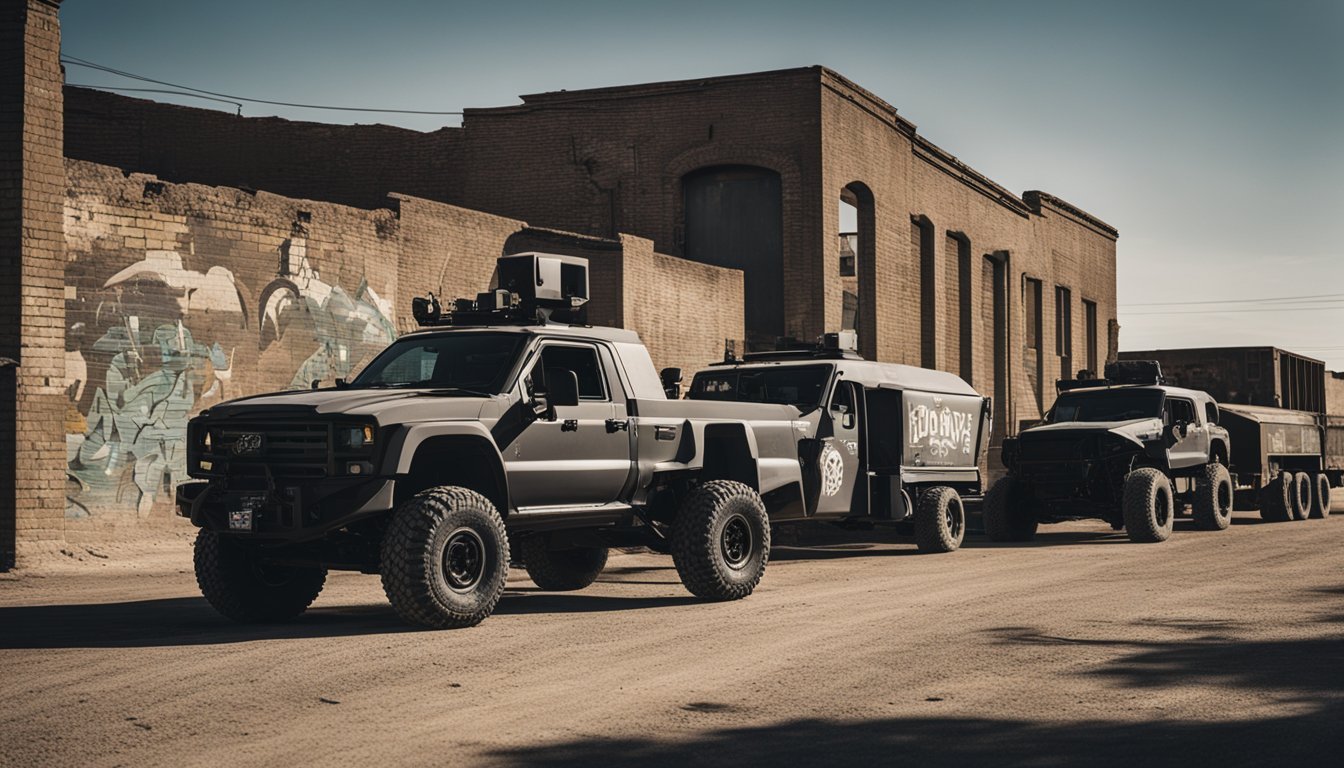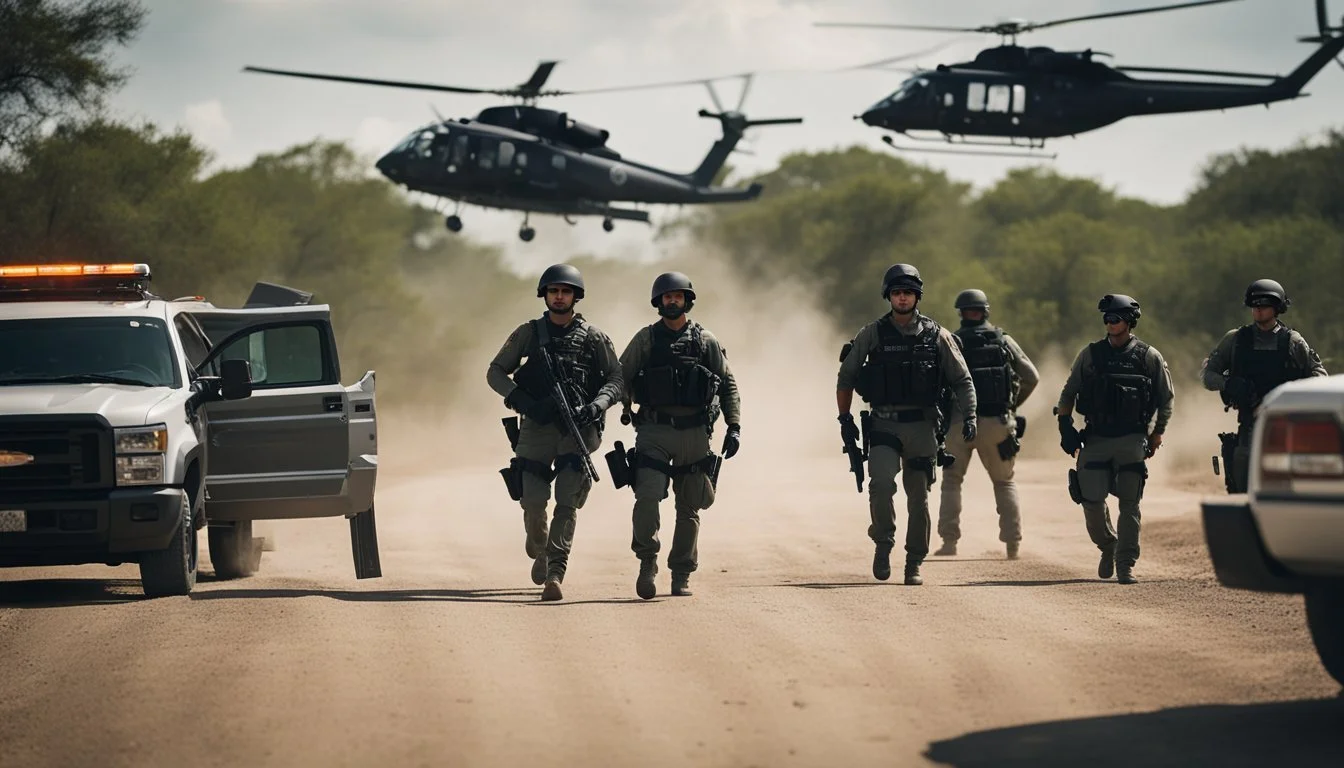10 Riveting Documentaries About Drug Cartels in Texas
Must-Watch True Crime Stories
Drug cartels have long been a significant part of the illegal drug trade, particularly in Texas, where their influence and reach have posed ongoing challenges for law enforcement and communities alike. This article explores ten documentaries that provide an in-depth look into the operations, impact, and stories surrounding these criminal networks.
These documentaries offer a rare glimpse into the world of drug cartels, shedding light on their activities, economics, and human costs. Through compelling narratives and investigative journalism, viewers gain a better understanding of the complexities involved in combating organized crime in Texas.
1) Cartel Land (2015)
"Cartel Land" is a compelling documentary directed by Matthew Heineman. It offers an inside look at the harsh world of Mexican drug cartels. The film focuses on two vigilante groups on either side of the U.S.-Mexico border.
In Michoacán, Mexico, Dr. Jose Mireles leads the Autodefensas. This group emerges to protect their communities from cartel violence.
Across the border, Tim "Nailer" Foley heads Arizona Border Recon. They aim to prevent cartel activities from infiltrating the United States.
Heineman's immersive, cinéma vérité style pulls the audience into these intense, real-life conflicts. With unprecedented on-the-ground access, viewers witness the daily struggles and dangers these groups face.
The film has received critical acclaim, winning awards at Sundance. Executive Producer Kathryn Bigelow adds her influence, known for "The Hurt Locker" and "Zero Dark Thirty."
"Cartel Land" is significant for anyone interested in understanding the deep-rooted issues of narco-trafficking and vigilantism on both sides of the border. More information on IMDB
2) The Trade (2018-2020)
"The Trade" is a gripping documentary series that explores the human impact of drug trafficking and other illicit industries.
Season 1 focuses on the opioid epidemic, uncovering the harsh realities faced by addicts, law enforcement, and dealers.
Season 2 shifts focus to Central American migrants, documenting their perilous journey to the United States and the dangers they encounter along the way.
Each episode dives deep into personal stories, presenting a visceral look into lives affected by these crises.
For more information, visit IMDb.
3) Narco Wars (2020-2022)
Narco Wars provides an incisive look into the brutal world of Latin American drug cartels. The TV series, aired from 2020 to 2022, features gripping interviews and rare footage that reveal the operations of powerful smuggling networks.
The series delves into how smuggling networks evolved into formidable cartels. It includes detailed accounts of figures like El Chapo Guzman and the war against the Arellano Felix Organization, notorious for supplying cocaine to the U.S. in the 90s.
With input from experts like Ioan Grillo and Chris Feistl, Narco Wars portrays the immense power and influence these cartels wield. Each episode uncovers different facets of cartel operations, illuminating their impact on society and politics.
For more information about Narco Wars, visit IMDB.
4) Dope (2017)
"Dope" is a gripping documentary series that provides an inside look into the world of drug trafficking.
It offers a raw perspective on how drugs move from producers to users. The series showcases the day-to-day operations of those involved in the illegal drug trade.
Set against the backdrop of the global war on drugs, "Dope" examines the lives of drug dealers and law enforcement officers.
The show delves into high-stakes scenarios and the complex relationship between these two worlds.
"Dope" is notable for its unfiltered portrayal of the drug trade's realities. It captures intense, real-life footage that helps viewers understand the dangerous environment both sides navigate.
For more information, you can visit IMDB.
5) Drug Lords
Drug Lords (2018-) provides an insight into the intricate operations of some of the most notorious drug cartels in history.
Each episode focuses on a different kingpin, revealing their rise to power and eventual downfall.
The series features in-depth stories about infamous figures such as Pablo Escobar, El Chapo, and others.
With interviews from law enforcement officials, former cartel members, and historians, viewers get a comprehensive look at the violent world of drug trafficking.
To learn more about Drug Lords, visit IMDB.
6) El Chapo
One of the most infamous drug lords, Joaquín "El Chapo" Guzmán, has been the subject of numerous documentaries capturing his criminal empire and dramatic captures.
"World's Most Wanted: El Chapo" (2020) explores the high-risk operations to apprehend Guzmán, including his notorious meeting with actor Sean Penn that contributed to his final capture. For more details, visit IMDB.
"Inside the Cartel" (1990) by Frontline provides an inside look at the operation of El Chapo's Sinaloa Cartel. This documentary offers a deep dive into the cartel's multi-billion dollar drug trade. More information can be found on PBS.
"Drug Lord: The Legend of Shorty" (2015) follows filmmakers aiming to interview Guzmán himself. This feature highlights the challenges and dangers faced while documenting one of history's most powerful cartel leaders. Additional information is available on PBS.
These documentaries provide varied perspectives on El Chapo’s operations, his impact on the drug trade, and the law enforcement efforts leading to his captures. They are essential viewing for anyone interested in the complexities of cartel activities and law enforcement.
7) Cocaine Cowboys (2006)
"Cocaine Cowboys," directed by Billy Corben, is a compelling documentary that details the harrowing world of drug trafficking in Miami during the 1980s. This film explores the rise of cocaine as a highly profitable business and its profound effects on the city's evolution and crime rates.
The documentary focuses on Jon Roberts, described by prosecutors as the Medellin Cartel’s American representative. His role in the Miami drug war is extensively covered, highlighting the associated crime wave that plagued the city.
Viewers are taken through the chaotic, often violent rise of the cocaine trade and are shown how it transformed Miami into one of the most crime-ridden cities in the U.S. during that period. This film is known for its raw storytelling and immersive interviews with key players.
For more information on "Cocaine Cowboys," visit Wikipedia.
8) Inside the Mexican Mafia
"Inside the Mexican Mafia" delves into the notorious organization known as La Eme. This documentary explores the origins, structure, and criminal activities of one of the most powerful prison gangs in the United States.
Formed in the California prison system in the 1950s, the Mexican Mafia has become a formidable force. It controls drug trafficking and other illicit activities both inside and outside prison walls.
The film provides interviews with former gang members, law enforcement officials, and experts. They offer insights into the operations and reach of the Mexican Mafia. The documentary also examines the gang's influence on other Hispanic gangs across the nation.
Viewers get a close-up look at the brutal tactics and strict code of conduct enforced by La Eme. The documentary sheds light on the gang's role in perpetuating violence and its impact on communities.
For more information, visit the IMDB page for Inside the Mexican Mafia (2015).
9) Narcos: Mexico (2018)
"Narcos: Mexico," a Netflix series, shifts focus from Colombia to Mexico, showcasing the inception and rise of Mexico's drug cartels. Released in 2018, it explores the chaotic underworld of Mexican drug trafficking.
The series dives deeply into the life of Félix Gallardo, a former cop taking over the drug trade. Diego Luna portrays Gallardo's transformation into a powerful kingpin.
The series also features Michael Peña as DEA agent Enrique 'Kiki' Camarena. Their dynamic and conflict drive much of the narrative, reflecting the intense battles between law enforcement and cartels.
Set in the 1980s, "Narcos: Mexico" paints a grim picture of corruption, violence, and the extensive power of the cartels. It provides a thorough look at the origins of some of the most notorious drug organizations in Mexico.
For more information: Narcos: Mexico on IMDb
10) American Underworld: Drug Trafficking (2011)
"American Underworld: Drug Trafficking" provides an in-depth look into the shadowy world of underground drug trade operations in Texas and beyond.
Through interviews and undercover footage, viewers get a rare glimpse into the daily operations of drug traffickers.
The documentary highlights how drugs move through the state, involving local gangs and international cartels.
This film also examines the socio-economic impact of drug trafficking on communities and law enforcement's ongoing battle against these criminal networks.
The documentary is both informative and eye-opening, shedding light on the hidden realities faced by those embroiled in Texas' drug world.
More information can be found here.
The Rise of Drug Cartels in Texas
Texas has seen a significant increase in drug cartel activity over recent decades. The economic allure and strategic location have made Texas a focal point for various powerful drug cartels.
Historical Background
Texas' connection to drug trafficking can be traced back to the 1970s. The Medellín Cartel's rise intensified the smuggling routes through Texas, leveraging its vast border with Mexico. The state's highways and ports became critical conduits for transporting cocaine, marijuana, and other narcotics into the United States.
During the 1980s and 1990s, the dismantling of major Colombian cartels shifted power to Mexican organizations. This period marked the beginning of Texas as a battleground for control over profitable smuggling corridors. The increased militarization of border security in recent years has spurred cartels to adopt more sophisticated and violent tactics to evade law enforcement.
Prominent Cartels
Several cartels have prominently established operational bases in Texas. Los Zetas, known for their brutal enforcement methods, originally comprised defectors from the Mexican military. They expanded their reach into Texas, engaging in drug smuggling, gun running, and human trafficking.
The Sinaloa Cartel, led by Joaquín "El Chapo" Guzmán, has also played a significant role. They have used advanced techniques and established networks to move large quantities of drugs through Texas. Their economic prowess has allowed them to corrupt officials and secure key logistical footholds within the state.
A newer player, the Jalisco New Generation Cartel (CJNG), has rapidly risen in influence. Notorious for their aggressive clashes with rivals and law enforcement, they have sought to expand their territories into Texas, making them a substantial threat to both Mexican and American authorities.
Impact on Local Communities
The presence of drug cartels in Texas has profound effects on the local communities, impacting both their economic stability and social fabric. These ramifications are felt deeply by residents, affecting daily life and long-term development.
Economic Ramifications
Drug cartels create significant economic disruption. Legitimate businesses often struggle due to extortion demands and a general climate of fear. Small business owners can face threats that lead them to shutter their operations.
Employment opportunities are also affected. People may be unwilling to work in cartel-dominated areas, leading to higher unemployment rates. Real estate values can decline as neighborhoods gain a reputation for being unsafe.
Additionally, law enforcement and emergency services require more funding to tackle the increased crime rates, diverting resources from other vital community services.
Social Consequences
The social fabric of communities bears substantial strain from cartel activities. Families often live in fear, disrupting the normalcy of daily life. Children and teenagers are particularly vulnerable, sometimes being recruited by cartels or exposed to drug-related violence.
Public spaces, such as parks and schools, may become unsafe, limiting recreational and educational opportunities. Trust in authorities can erode, as residents feel that law enforcement is either ineffective or corrupt.
Mental health issues can proliferate due to the constant stress and trauma associated with living in dangerous environments. Community bonding and social growth are stunted as people become more isolated, wary of forming new relationships.
Law Enforcement Efforts
In tackling drug cartels in Texas, law enforcement agencies have executed large-scale operations and developed robust inter-agency cooperation frameworks to combat narcotics trafficking effectively.
Major Operations
Multiple large-scale operations have been conducted targeting drug cartels in Texas. For instance, the series Drugs, Inc. thoroughly documents various efforts by federal and state law enforcement to dismantle these criminal networks. Notable operations have led to the seizure of considerable amounts of narcotics and arrests of key cartel members, disrupting their operations significantly.
Federal agencies, such as the DEA, execute coordinated raids involving extensive surveillance and intelligence gathering. These actions aim to dismantle the supply chain, from traffickers to local distributors. Operations often result in lengthy prison sentences for convicted cartel members, providing a strong deterrent to other criminal elements.
Additionally, Governor Greg Abbott's directives to state police have emphasized the importance of collecting intelligence on cartel activities and investigating gangs. These gangs often act as local distribution arms for larger cartels. Such sustained efforts are critical in combating the evolving tactics of drug traffickers.
Cooperation Between Agencies
Effective cooperation between various law enforcement agencies is essential in addressing the complex nature of cartel operations. Federal, state, and local agencies work together, sharing intelligence and resources to mount a cohesive fight against narcotics trafficking.
Joint task forces, combining personnel from the DEA, FBI, local police, and state troopers, ensure coordinated actions and strategic resource allocation. For instance, West Texas, leading in federal criminal prosecutions due to cartel activities, highlights the necessity of such cooperative frameworks.
Information sharing through databases and inter-agency communication channels enables quicker responses and more targeted operations. These collaborations are pivotal in building comprehensive cases against cartels. Such cohesion among different law enforcement bodies enhances operational effectiveness and reinforces the capability to tackle cartel activities on multiple fronts.

